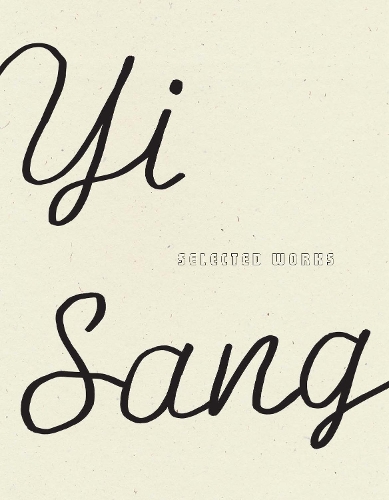
Yi Sang: Selected Works
(Paperback)
Publishing Details
Yi Sang: Selected Works
By (Author) Yi Sang
Edited by Don Mee Choi
Translated by Jack Jung
Translated by Sawako Nakayasu
Translated by Don Mee Choi
Translated by Joyelle McSweeney
Wave Books
Wave Books
16th November 2020
United States
Classifications
General
Non Fiction
Anthologies
Literature: history and criticism
895.733
Physical Properties
Paperback
224
Width 177mm, Height 228mm
Description
- This is the first major retrospective to be published in English of the Korean modernist poet Yi Sang. This collection will be an introduction of his work to English-speaking audiences.
This multi-genre collection, edited by Don Mee Choi, is a collaboration between Don Mee, Jack, Sawako, and Joyelle, all of whom are celebrated poets and award-winning translators.
The book was supported by a grant from LTI Korea, and we expect it to be well promoted internationally and through support of events in Seoul as well as around the US (notably Seattle, New York, Chicago). The collaborators are interested in touring with the book and supporting it through media outlets (social media as well as print outlets).
The Yi Sang Literary Award is one of the most prestigious awards in South Korea, and therefore we think this book will have international visibility.
This book is already gaining traction with social media publicity, and it is posed to be excerpted/reviewed in places such as The Guardian, Poetry, BOMB, GRANTA, and The Paris Review, as well as translation-focused publications Asymptote and Two Lines.
This book should have a strong appeal for course adoptions as well as general audience consumption. Because it is a major retrospective we expect that it will appeal to libraries interested in Korean literature and in expanding their international collections.
Reviews
Don Mee Choi's translations deftly activate a visionary poetry of great speed, volume, and vision.
--judges of the The 2019 Lucien Stryk Asian Translation PrizeYi Sang's poetry seemed to deny the prerogatives of the mundane world while being saturated with the alienation and horror of the Occupation.
--Joyelle McSweeney, Entropy
Author Bio
Yi Sang (1920-1937) was a painter, architect, poet and writer of 1930s Korea, when Korean peninsula was under Japanese colonial rule. Yi Sang wrote and published in both Korean and Japanese until his early death from tuberculosis at the age of 27, after imprisonment by Japanese police for thought crimes in Tokyo. His work shows innovative engagement with European modernism, especially that of Surrealism and Dada. He is considered one of the most experimental writers of Korean modernism.
